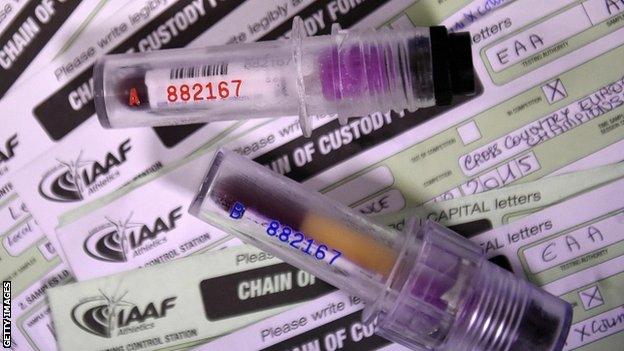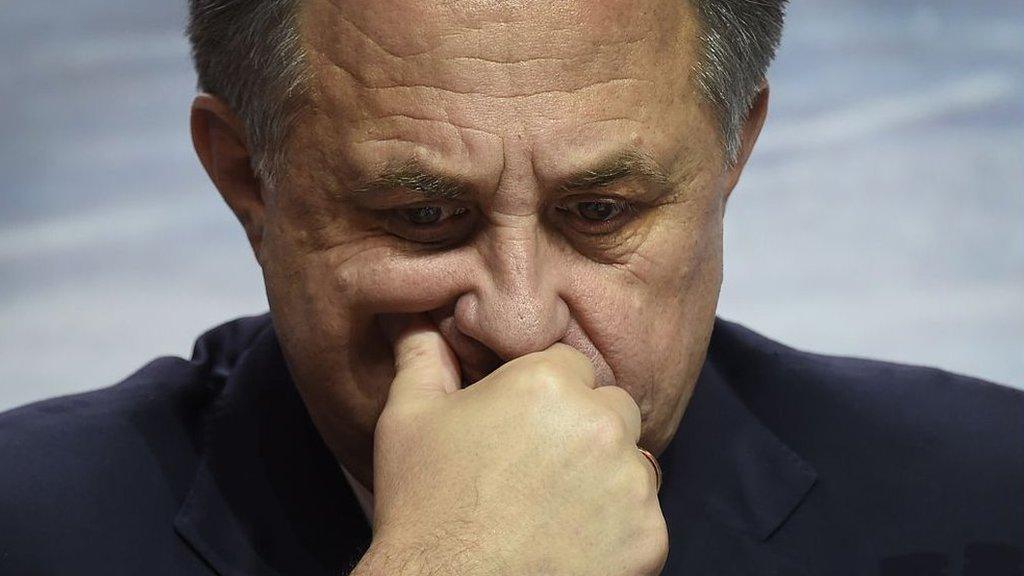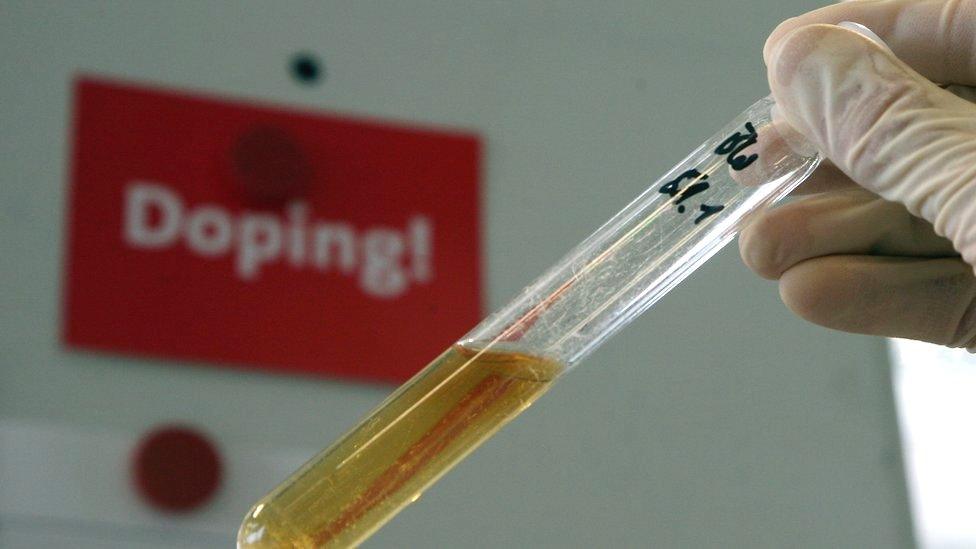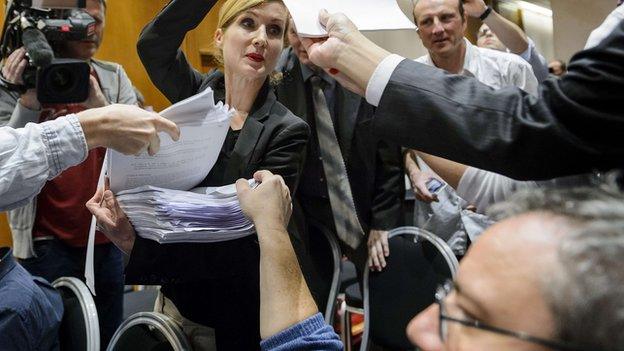Thomas Bach: More Russian federations could be banned
- Published

Russia is currently banned from competing in athletics
More Russian sports federations could be banned if the latest allegations of state-aided doping are proven, Olympic president Thomas Bach says.
Whistleblower Vitaly Stepanov has claimed Russian intelligence agents posed as anti-doping staff to cover up cheating at the 2014 Sochi Olympics.
If true, it would represent an "unimaginable level of criminality", Bach said.
Russian athletics is banned from global competition over separate claims.
International Olympic Committee (IOC) president Bach said the latest allegations by former Russian anti-doping agency worker Stepanov would be a "shocking new dimension in doping" if proven.
Stepanov made the claims on CBS network's 60 Minutes, external programme, saying he was told of the cover-up by Grigory Rodchenkov, the former head of Moscow's anti-doping laboratory.
In a separate New York Times report, Rodchenkov alleges dozens of athletes, including at least 15 medallists at the 2014 Winter Olympics, were part of an extensive state-run doping programme.
Bach said the IOC would apply a "zero tolerance policy not only with regard to individual athletes, but to all their entourage within its reach".
"This action could range from lifelong Olympic bans for any implicated person, to tough financial sanctions, to acceptance of suspension or exclusion of entire national federations like the already existing one for the Russian Athletics by the International Association of Athletics Federations (IAAF)," the German said.
The IOC has asked the World Anti-Doping Agency (Wada) to investigate the Sochi allegations, while Russia's sports ministry has said it was "certain about transparency of doping control" at the Winter Games.
Russia won 33 medals at their home Games, including 13 golds.
The country's athletics federation is due to find out next month if its athletes will be allowed to compete at August's Rio Olympics.
Bach added: "The results of the Wada investigation will also greatly influence the nature of the participation of Russian athletes in the Rio Olympic Games.
"Should there be evidence of an organised system contaminating other sports, the international federations and the IOC would have to make the difficult decision between collective responsibility and individual justice."
Russian sports minister Vitaly Mutko wrote in the Sunday Times the country was "very sorry" and "ashamed" of cheating athletes who were not caught by its anti-doping systems.
But he stopped short of admitting the athletics doping scandal was state sponsored, saying athletes "tried to deceive us, and the world".
Bach's comments came the day after the IOC announced it had discovered 31 positive tests following the re-testing of 454 samples collected at the 2008 Beijing Olympics.
- Published15 May 2016

- Published13 May 2016

- Published9 November 2015
